The numbers concerning professional Esports are both massively encouraging and discouraging at the same time. Whilst there is a consistent increase in audiences and the values of prize pools are now extremely significant, only a minute percentage of gamers who want to go pro in Esports will actually succeed. We'll break down the details of this, and figure out how you can beat the 99.9% and forge your own career in pro Esports.
In This Article:
What Percentage Of Gamers Make It As A Pro?
There are a few factors to consider when we're calculating the percentage of gamers who successfully go pro. We could throw around estimates and rehash the same percentages as other websites have done, but if we actually consider the real numbers - your odds are fairly goo when compared to other sports. Not only that, you can increase your odds of going pro, too.
What are the odds?
To figure out the odds of making it as a pro, we can only look at specific games and potential professional earnings for these games. One of the fastest growing Esports games right now is Valorant, so we're going to focus on this as an example.
As a direct comparison, we can look at professional football in the UK, just for some perspective. According to former FA Head of Talent Identification, Richard Allen, less than 0.5% of the players aged under 9 who are signed by professional teams, will actually play for the first team in their career. In other words, just 1 player signed by a pro club will be chosen from a maximum of 200. Looking wider still, there are 1.5 million youth players in England, and only 180 - 200 of these players will ever be developed in the Premier League. That's a 1.3% chance of going pro from playing in FA youth football, through academies and finally to the Premier League.
Now, let's compare your chances in Esports. To do so, we need to look at the hard numbers.
- Number of global Valorant players: 13 million avg. monthly active players
- Number of professional Valorant players: 250 earning prize money =>$10,844
This would suggest that you have a 1.92% chance of going pro and playing Valorant for a living, making a minimum of five figures per year.
Increasing Your Odds
The above numbers are only based on earning five figures from prize money in tournaments or events. But this isn't the whole story in terms of "going pro".
When it comes to earnings, and what figure differentiates an amateur from a pro, then we can surmise that a professional gamer makes five to six figures per year. There's evidence to suggest that pro gamers make anywhere between £2500 and £3500 per month from their skills. These earnings are not based on prize winnings from just tournaments or events, either. Like all self-employed or freelance careers, revenue can come from may sources, such as team contracts, advertising contracts, coaching or a gamer's own live streams.
Besides this, there are only between 740,000 and 840,000 concurrent players for Valorant, so you're no longer in a crowd of millions trying to get noticed.
So, with the potential to make money from other sources and actual online players, we are no longer looking at a 1.92% chance of going pro (making a living from playing games). It is perfectly conceivable that any player with the skill level it takes to enter and win tournaments will have the necessary skills to coach, get individual sponsorship, or even amass a following on Twitter and Twitch.
There's a wonderful side effect of becoming popular on Twitch and social media, too. You get noticed by teams and sponsors who get to see your skills first hand.
Earning While You Learn
This brings us neatly to how you can support yourself until you make it in the big leagues. Twitch is the obvious contender here, considering they have a focused business model that allows streamers to earn money from their following. Earning revenue on Twitch is not easy, and will take some time to build your following to a point where they will consider you for "Affiliate" status. According to StreamScheme.com, this consists of three milestones: -
- The streamer must have at least 50 followers.
- The streamer must have streamed for a minimum of 500 minutes over at least seven days in the past month.
- The streamer must have maintained an average of at least three concurrent views over the last month.
Once these milestones are hit, you can earn in various ways from the platform, such as a 50% share of monthly subscriptions ($4.99 - $24.99), and Twitch Bits donated by viewers (each Bit = one penny). Without hitting the milestones, you'll be stuck earning from other sources of income outside of the Twitch affiliate program.
Twitch is not the only method of earning as a streamer, though, as we've discussed. There are many ways to earn online as a streamer: -
- Brand sponsorships
- Patreon
- Donations
- YouTube
- Affiliate marketing
- Merchandise
- Subscriptions
- Ad revenue
All of these sources of income will support your journey to professional gaming, and if you combine multiple revenues, and enjoy the content creation, you might even consider simply streaming and being an influencer over pursuing a professional gaming career in Esports!
Improving Your Skills
It is vital that on your way to becoming a pro gamer in Esports, you focus on honing your skills in your chosen games. There are multiple ways you can do this, but the most favoured option is employing the services of a coach.
Paid coaching is available from trustworthy sites such as Gamer Sensei, but also from places like Reddit in the r/Valorant subreddit, and in the Valorant Discord where you will find coaches taking on young padewans for free in return for a testimonial. Esports Champions like Fnatic have coaches at their disposal for each team and for each game.
Jakob "YamatoCannon" Mebdi, head coach at Fnatic, enables their League of Legends team to shine by allowing their personalities and playstyle to come through while maintaining an overall strategy. A coach's job is to enhance your individuality while increasing your skill level, which will ensure you have a unique edge going into professional level gaming. If you play the same as everyone else, then your tactics will be easier to spot, so it is important that your playstyle comes through. it is, after all, what makes you an individual.
"I see my role as I need to make sure that my players are on the path of progression and that they are enabled as much as possible. That’s going to look very different depending on the dynamics and also depending on the individuals. Regardless of how many years of experience







